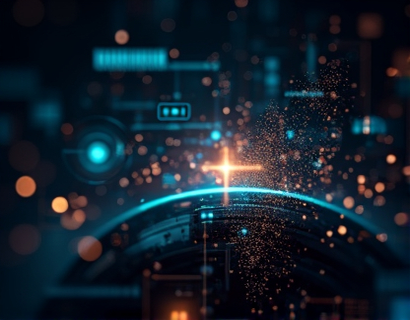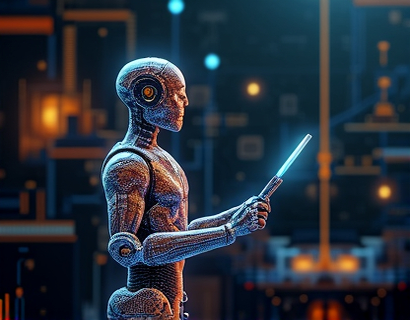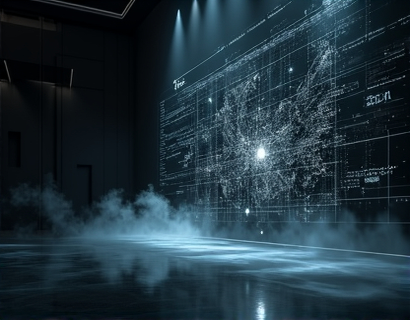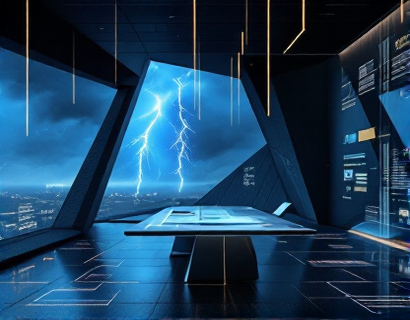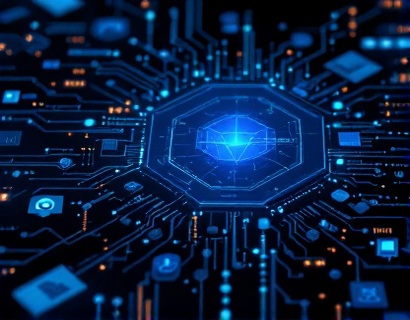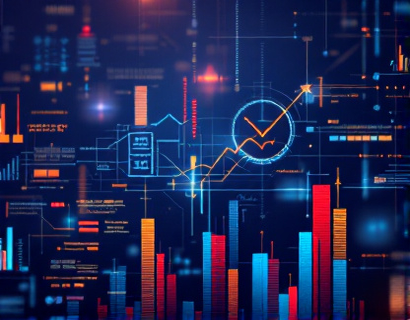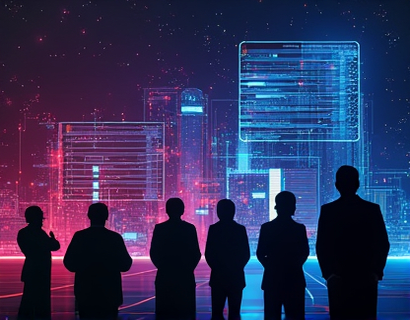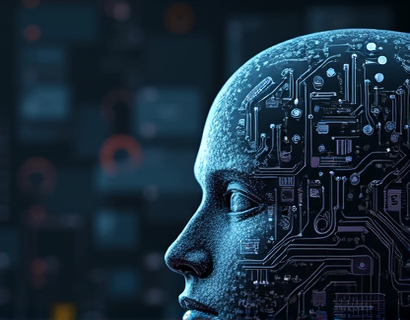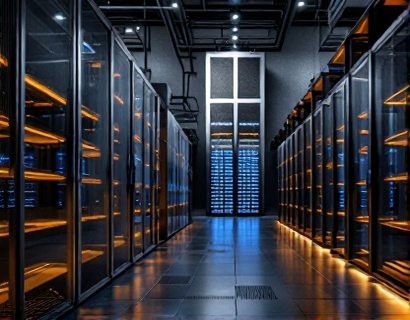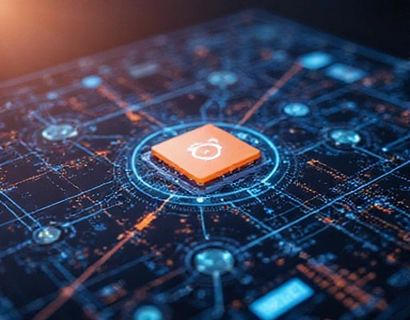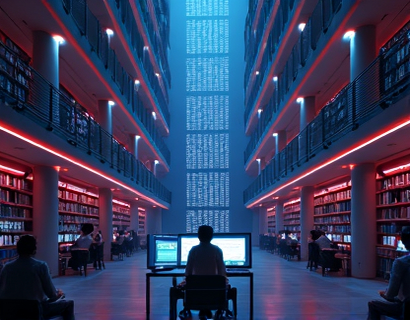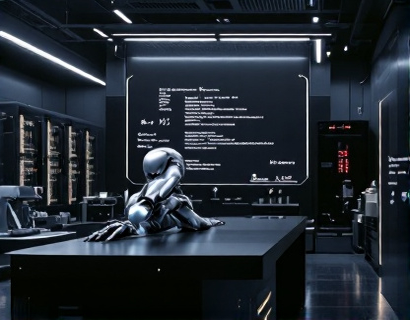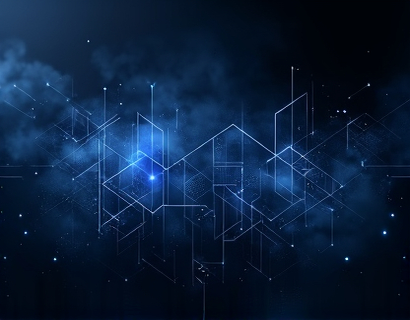Decentralized DAOs: Empowering Web3 Governance with Community-Driven Innovation and Transparency
In the rapidly evolving landscape of Web3, decentralized autonomous organizations (DAOs) stand as a pivotal force, redefining governance and innovation through community-driven approaches. This guide delves into the essence of DAOs, exploring how they empower Web3 governance, enhance transparency, and ensure scalability, ultimately transforming the management of digital protocols and shaping a more interconnected and innovative digital future.
Understanding Decentralized DAOs
Decentralized autonomous organizations, or DAOs, are digital entities governed by smart contracts on blockchain networks. These smart contracts encode the rules and procedures for decision-making, fund management, and operational execution, eliminating the need for centralized authorities. The core principle of a DAO is decentralization, which means that control and decision-making power are distributed among its members, typically token holders.
The concept of DAOs emerged from the broader blockchain and cryptocurrency movement, building on the foundational ideas of decentralization and community governance. Unlike traditional organizations, DAOs operate without a central hierarchy, allowing for a more democratic and inclusive approach to management. This structure not only fosters innovation but also ensures that the interests of the community are prioritized over those of a few individuals.
Community-Driven Governance
One of the most significant advantages of DAOs is their community-driven governance model. In a DAO, decisions are made through proposals and votes, where token holders have a say in the direction and development of the organization. This process is transparent and accessible, allowing anyone with a stake in the DAO to participate in governance.
The governance mechanism typically involves a proposal system, where members can suggest changes or new initiatives. These proposals are then discussed and voted on by the community. The voting process is facilitated by smart contracts, ensuring that the outcomes are immutable and tamper-proof. This approach not only democratizes decision-making but also enhances accountability, as all actions and decisions are recorded on the blockchain.
Community-driven governance in DAOs fosters a sense of ownership and responsibility among members. It encourages active participation and collaboration, leading to more innovative and effective solutions. By leveraging the collective wisdom of the community, DAOs can adapt quickly to changing circumstances and address challenges more efficiently than centralized entities.
Transparency in DAOs
Transparency is a cornerstone of DAOs, and it is achieved through the inherent properties of blockchain technology. All transactions, proposals, and votes within a DAO are recorded on a public ledger, making them visible to anyone. This level of transparency builds trust among members and stakeholders, as there is no room for hidden agendas or corrupt practices.
The immutable nature of blockchain ensures that once a transaction or decision is recorded, it cannot be altered or deleted. This permanence provides a clear and auditable history of the DAO's activities, enhancing accountability and reducing the risk of fraud. Members can easily track the flow of funds, the progress of projects, and the outcomes of votes, fostering a culture of openness and trust.
Transparency also extends to the code itself. Smart contracts, which form the backbone of DAOs, are open-source, allowing developers and auditors to review and verify their functionality. This openness not only ensures the reliability of the system but also encourages community contributions and improvements, further enhancing the robustness of the DAO.
Scalability and Efficiency
Scalability is a critical factor for the success of any digital organization, and DAOs are designed to address this challenge through decentralized and automated processes. By leveraging blockchain technology, DAOs can handle a large number of transactions and participants without the bottlenecks associated with centralized systems.
Smart contracts automate many governance and operational tasks, reducing the need for manual intervention and minimizing the risk of human error. This automation not only increases efficiency but also ensures consistency and fairness in the execution of decisions. For instance, fund distribution, membership management, and protocol updates can all be handled seamlessly through smart contracts, streamlining operations and reducing costs.
Moreover, the decentralized nature of DAOs allows for horizontal scaling. As the community grows, new nodes and participants can join the network without overloading the system. This scalability is essential for DAOs to accommodate increasing demand and maintain performance, ensuring that the organization can grow and evolve alongside its members.
Transforming Digital Protocol Management
DAOs are revolutionizing the way digital protocols are managed, offering a more democratic and efficient alternative to traditional centralized models. In the context of Web3, where decentralized applications and services are becoming increasingly prevalent, DAOs play a crucial role in ensuring that these protocols are aligned with the interests of the community.
For example, in the realm of decentralized finance (DeFi), DAOs can govern lending platforms, exchanges, and other financial services. By involving token holders in decision-making, DAOs can make adjustments to interest rates, fee structures, and risk management policies based on community feedback. This approach not only enhances user satisfaction but also promotes innovation, as the community can propose and implement new features and improvements.
In the domain of decentralized governance platforms, DAOs can manage the allocation of resources, the development of new features, and the resolution of disputes. By decentralizing these processes, DAOs ensure that the platform remains fair, transparent, and responsive to the needs of its users. This governance model also reduces the risk of central points of failure, making the platform more resilient and secure.
Challenges and Considerations
While DAOs offer numerous benefits, they also come with challenges that need to be addressed to ensure their success and sustainability. One of the primary concerns is the technical complexity involved in setting up and managing a DAO. Creating robust smart contracts and implementing effective governance mechanisms require a high level of technical expertise, which can be a barrier for many potential participants.
Another challenge is the governance paradox, where the more decentralized a DAO is, the harder it becomes to reach consensus. With a large and diverse community, achieving agreement on proposals can be time-consuming and difficult. To mitigate this, DAOs can implement mechanisms such as weighted voting, where the voting power is proportional to the amount of tokens held, or delegate voting, where members elect representatives to make decisions on their behalf.
Security is also a critical consideration for DAOs. Smart contracts, while transparent, can contain vulnerabilities that may be exploited by malicious actors. Regular audits and security assessments are essential to identify and fix potential issues before they can be exploited. Additionally, community education on best practices and security measures is crucial to protect the DAO and its members.
The Future of DAOs in Web3
As Web3 continues to evolve, DAOs are poised to play an increasingly significant role in shaping the digital landscape. The combination of community-driven governance, transparency, and scalability makes DAOs a powerful tool for building decentralized and inclusive systems. By empowering communities to take control of digital protocols and services, DAOs foster innovation and collaboration, driving the growth of the Web3 ecosystem.
Looking ahead, we can expect to see more DAOs emerging across various domains, from decentralized social networks to autonomous data marketplaces. The success of these organizations will depend on their ability to overcome technical and governance challenges, build strong and engaged communities, and deliver value to their members. As the technology matures and more tools become available, DAOs will become more accessible and user-friendly, further accelerating their adoption and impact.
In conclusion, decentralized DAOs represent a transformative approach to governance and innovation in the Web3 era. By leveraging the power of blockchain and community participation, DAOs offer a more transparent, scalable, and democratic alternative to traditional centralized models. As the digital world continues to evolve, DAOs will play a crucial role in shaping a more interconnected, innovative, and equitable future.




